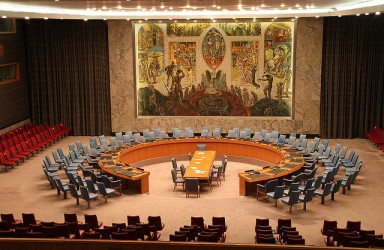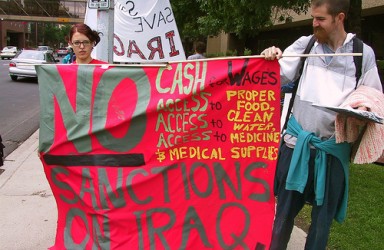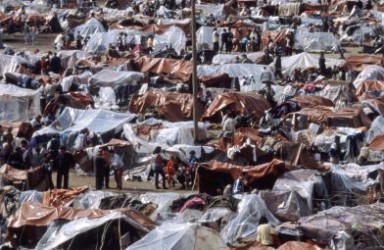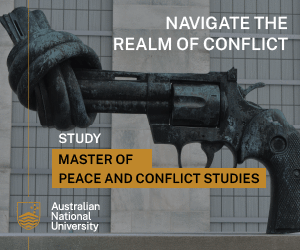Child Reconciliation in Post-Conflict Sierra Leone
The systematic inclusion of children in the Sierra Leone Truth and Reconciliation Commission process was unprecedented in the history of truth and reconciliation initiatives. Given the country’s history of child involvement in the war as both victims and perpetrators, it was especially important to include children in the post-conflict peacebuilding processes.
Ethnic Conflict and R2P
We may all agree that there is a moral imperative to halt mass atrocities. The problem is the reconciliation of such an obligation and our entrenched system of anarchy at the international level. Those states that are part of the United Nations should have a responsibility to respect the adoption of R2P principles, notably the moral imperative to halt mass atrocities and punish the perpetrators through the ICC.
Are International Courts Effective?
International courts as they stand are flawed, yet they have accomplished a great deal in making the international order less anarchic. It would be naïve, however, to assume that the relative achievements of international justice have eradicated the risk of genocide and other heinous crimes against humanity
A critique of the theory and practice of R2P
The R2P is heralded by many as making political power more responsible and accountable, both to the domestic citizenry and ‘international community’. It has sought to democratise humanitarian intervention in a way which reconceptualises sovereignty as responsibility and looks to protect the ‘victim other’ from imminent mass death at the hands of irresponsible state power.
Third Party Intervention in Ethnic Conflict
This essay is concerned with the motivations that drive states to intervene, and argues that their actions are never wholly disinterested. The scope of this essay will be limited to interventions which third-parties have justified on humanitarian grounds, looking in particular at the case of the NATO intervention in Kosovo in 1999.
Can ‘International Sanctions’ in Foreign Policy be Ethical?
Although they face extreme difficulties, international sanctions in foreign policies can still be ethical. This essay begins by stressing the two dimensional problem of ethics and gives the reasons why the existence of international ethics is still possible. The essay will then analyze the difficulties sanctions face, and under which conditions ethical international sanctions can be realized.
Iran: What is the Nuclear Crisis?
The notion of popular sovereignty stands in contrast with Iran’s religious lineage. This dichotomy makes it difficult for the state to materialize its diplomatic goals, which only isolates it from the international system, fueling the need to expand its nuclear program in an effort to ensure national security. It is virtually impossible for Iran to forge successful international relations when it suffers from the national clashing principles of Islamic rule and popular sovereignty.
Victims and Perpetrators: the Implications of the Dual Status of Child Soldiers
This paper will seek to investigate the ambiguous status of child soldiers looking at their victimhood, their level of agency and the resulting post-conflict implications. It will argue that although local communities and child soldiers themselves understand their inherent duality, the international discourse has yet to incorporate it, which leads to an inadequate response.
How should America react when bad things happen in unimportant places?
What should the United States do when saving strangers is the morally correct thing to do, but politically and practically, it could turn out to be a nightmare? If America is going to put the lives of its citizens at stake in situations where the primary motivation is not national interest, but an interest in common global humanity, America should be sure that she can do more good than harm.
Global Cooperation and Domestic Legislation to Save the Earth
The deterioration of our environment can lead to horrific and irreversible consequences. What makes this area far more complex is that it requires a worldwide effort. It is not enough for only the main subjects of international law to address this concern, but participation from all levels of society, from the government to the individual and to multinational corporations, is also vital.















